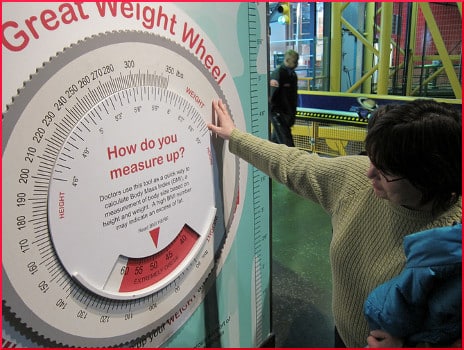 Christopher Bergland is connected with the Alliance for a Healthier Generation, an organization primarily concerned with the childhood obesity epidemic. Its project is the Healthy Schools Program, which operates in 27,000 American schools. He is also an endurance athlete and coach who…
Christopher Bergland is connected with the Alliance for a Healthier Generation, an organization primarily concerned with the childhood obesity epidemic. Its project is the Healthy Schools Program, which operates in 27,000 American schools. He is also an endurance athlete and coach who…
…aspires to bring you inside the athletic mindset and process of success in sports and competition so that you can better understand your psychology surrounding physical activity and take your life to a higher ground.
Bergland wrote for Psychology Today about the decision the American Medical Association made in 2013 to classify obesity as a disease that is both chronic and complex.
A typical argument for this move was that obesity “impairs normal functioning,” which is part of the definition of disease. Some experts were in favor because it would confirm obesity as a health problem, rather than a character problem. And of course, the disease designation could attract more funding for research, prevention, and treatment, and help patients use their insurance.
Disease Label Causes Psychological Backlash Among Obese
Bergland, like many other health professionals, worried about the law of unintended consequences: the choice to declare obesity a disease could backfire and incur hidden costs. Subsequently, researchers from the University of Richmond and the University of Minnesota vindicated his concern through a study of whether the disease label would inadvertently sabotage the good intentions behind the change.
700 people responded to the opportunity to participate in an online survey. They were divided into 3 groups, with each group assigned to read a differently-slanted article about obesity. One article was a standard neutral public health message; another described obesity as a disease; and the third specifically affirmed that obesity is not a disease. Then all the participants answered questions about their thoughts and behavior.
What the research team found was psychological backlash—a tendency among some obese people to give up and let themselves go. The obesity-as-disease trope encourages body acceptance, also known as fat acceptance, which is not an unalloyed blessing. More ominously, it apparently decreases any motivation that people might have to treat their obesity as an urgent problem or to prioritize the ending of it. Bergland says:
The results of this study show that when obesity is framed as a disease—or not a disease—it has a dramatic impact on an obese persons attitudes towards health, diet, and weight… The researchers found that obese individuals who were told that obesity is a disease actually made less effort to make healthy diet choices and reported less motivation to change their weight.
Like so many studies, this one determined that further research is needed. In the soft sciences, a very large number of studies share that recommendation. In a way, this is good, because it shows open-mindedness and an avoidance of dogma. In another way, it could be seen as a copout, because no one can ever look back and complain that “needs more research” was an incorrect answer.
In the way that really matters for us right now, it is disappointing. If people see disease as something beyond their control and believe they literally can’t help it, any attempt at weight management seems futile, so why bother to try? This is the question that urgently needs answering. And it seems, from all the highly individual stories of motivation, that each person needs to find her or his own answer.
Your responses and feedback are welcome!
Source: “Labeling Obesity as a Disease Increases Body Acceptance but Decreases Motivation to Lose Weight
PsychologyToday.com, 01/28/14
Source: “Obesity is a disease because it impairs normal functioning
Roanoke.com, 07/13/13
Image by Rich Moore

 FAQs and Media Requests:
FAQs and Media Requests: 











